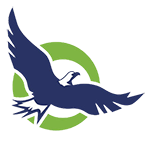Read the detailed description of Quest's Summer Camp information!
Read Our Latest Announcement!
Sincerely,
Jodie Knott, Ph.D.
Director and Licensed Psychologist
Quest Therapeutic Camps of Southern California
Healthy Hygiene Behaviors in Children
For our October newsletter we are going to be focusing on something that is scary! Nothing is scarier than kids’ hygiene! This can be especially true for kids with attention, learning and social issues, making this issue one of critical importance and challenge for parents.
Children with special needs can often struggle more than their peers with hygiene for several reasons including:
- Miss hidden social rules related to typical hygiene behaviors that are occurring around them.
- Hygiene is a less preferred activity so it can be challenging for children to stay focused on hygiene or switch to it from a more pleasurable activity that they would rather be engaging in.
- There are many steps to hygiene. For example: a typical shower routine for a teen might involve shampoo, soap, possibly conditioner, needing to cleanse the entire body, the application of a special face soap or cream, and deodorant. Not to mention the steps for dressing or other hygiene behaviors such as oral hygiene.
Hygiene is so important that it will be the topic of conversation almost everyday. It needs to be reviewed again and again, and at times can feel like the “Groundhogs Day” movie for parents in which Bill Murray keeps getting up every day and trying different ways to negotiate the same situation until finally he finds a solution that works. These conversations about personal hygiene are important to have with children, even though they might feel uncomfortable to talk about.
Hygiene is so important that it will be the topic of conversation almost everyday. It needs to be reviewed again and again, and at times can feel like the “Groundhogs Day” movie for parents in which Bill Murray keeps getting up every day and trying different ways to negotiate the same situation until finally he finds a solution that works. These conversations about personal hygiene are important to have with children, even though they might feel uncomfortable to talk about.
Helpful Tips
1. Discuss hygiene as a “non-negotiable” since it is a health behavior and all behaviors that related to health and safety are non-negotiables.
2. Talk about various aspects of hygiene as “hidden social rules” and break down these rules for kids.
Here is an example of one of the hidden rules we teach at camp related to hygiene, but really you can come up with many.
Hygiene is important. People have thoughts and feelings about you related to your hygiene. If you don’t bathe everyday and brush and floss your teeth everyday people will have negative thoughts and feelings about you. Parents try to give reminders about showering, brushing, deodorant, changing clothes, hand washing, and using a tissue to blow your nose. Your parents are trying to help you. You should not give your parents a hard time about hygiene.
3. Reward, Reward, Reward
Try to remember that kids with attention, learning, and social difficulties often need 4x’s more rewards than other kids. Parents are often successful if they do rewards for children completing different steps of the hygiene process. Parents can also provide lots of bonuses for a positive attitude about hygiene and for developing more independence.
Honesty might also be important. I can’t tell you how many kids I have in my practice who actually take showers, but then struggle with honesty about if they used shampoo or not. At Quest, for our residential weeks we have had a great opportunity to work on hygiene “hidden rules” and behaviors. A lot of of campers struggle the first couple days with the hygiene structure, but then it helps that we do the same routine each day and we let our kids know it is going to be the same routine so they know what to expect from us.
Many of our campers are still definitely surprised when we send them back to re-shower (despite being front loaded that this is exactly what we will do) when it is clear that they have not really used soap or shampoo appropriately. At Quest, we look at this as a great opportunity to use coping skills and reinforce basic skills that our kids need to be successful. This doesn’t mean that as staff we don’t also need to use our own coping skills at times. I also recommend using coping skills to the parents that we work with who might not necessarily be feeling in this moment like this is a “great opportunity” to do intervention and instead is just thinking that this is Thursday and the family is running late.
4. Use visual reminders to teach the various steps of hygiene and check off lists to make sure all components are followed.
While helping children improve their hygiene behaviors can be downright scary at first, it is crucial to helping children be healthy and successful with their peers as they grow. While learning healthy hygiene behaviors and demonstrating more independence for these behaviors is a process it is important to have high expectations for children in this area, be consistent, and have lots of rewards and praise along the way as you see children growing in their abilities in this area.
UPCOMING PROGRAMMING
School Year Programming
School year therapy groups are ten-week afternoon therapeutic groups that are designed to provide therapy by specifically targeting individualized goals for our campers.
A minimum of one hour includes therapeutic activities that heavily target the development of social skills, emotion regulation, and positive behaviors, while the next hour focuses on further skill development by providing a variety of experiential activities as part of a group to create opportunities to observe the child in a natural setting and intervene to facilitate change. Some quarters provide a special emphasis to improve skills, while other quarters have a more general offering based on the campers’ interests and often include programming in areas such as video game making, drama, art, movie making, etc.
Winter Group Dates are:
January 4th – March 8th
Wednesday Evenings 5:30 to 7:30
at the Central Library in Huntington Beach
Summer Programming
Quest’s intensive summer program offers 7 weeks of programming (6 weeks of day camp and 1 week of residential). The summer program includes individualized behavior plans, group therapy, occupational therapy, a social thinking curriculum, mindfulness activities, yoga, soccer, games in the park, and field trips (beach, boomers, rock climbing, ropes course, bowling, etc.) to create a fun and engaging, therapeutic camp experience for children.
Weekly parent meetings are also included. The summer program has been found across multiple studies to significantly reduce hyperactivity, impulsivity, aggression, and inattention, while improving peer relations, family relations, athletic competency, behavioral control and self-esteem. Quest has also been found to improve social awareness, social cognition, social communication, and social problems.
Summer Camp Dates are:
June 26 through August 10th

